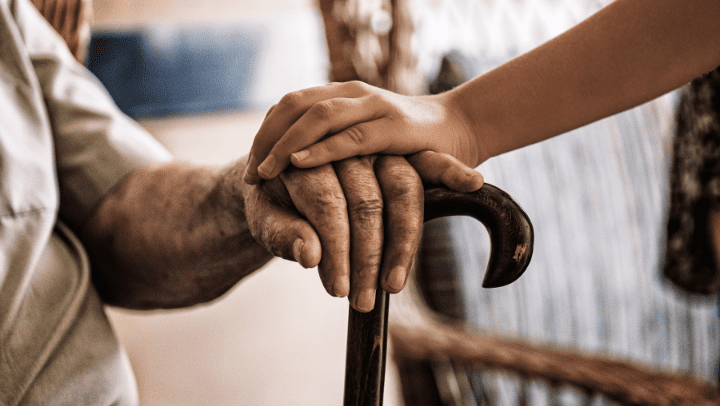
Your loved one’s aging journey can bring unexpected challenges that need tough decisions. You might notice subtle changes in their health, behavior or daily routines that tell you they need extra support.
Early detection of warning signs can make a crucial difference in your loved one’s quality of life. Many families find that Greenfield, WI, assisted living for seniors offers the right mix of independence and support.
This piece helps you spot vital health warning signs that suggest assisted living might be the right choice. We’ll get into physical and cognitive changes, daily living challenges and risk concerns that could impact your loved one’s well-being.
Physical Health Warning Signs
Your loved one’s physical changes are often the first signs that they need more support. Learning about these signs will help you make better decisions about their care.
- Changes in Mobility and Balance: As we age, our bones naturally shrink in size and density and our muscles lose strength and flexibility. These changes substantially affect coordination and stability and increase the risk of falls. Insufficient physical activity may also cause half of the physical decline in seniors. You should watch out if your loved one struggles with stairs or stumbles frequently—these are vital warning signs.
- Unexplained Weight Loss or Gain: Weight changes need careful attention, especially when they are unplanned. Weight loss of 5% or more over 6 to 12 months can point to health issues. Research shows that 15-20% of seniors living at home experience unexplained weight loss. Many factors can cause these changes, such as trouble with grocery shopping, less interest in cooking or problems with meal preparation.
- Chronic Health Condition Management Difficulties: Age makes it harder to handle multiple health conditions. We found that 92% of older adults have at least one chronic condition and all but one of these seniors manage two or more. Heart disease, diabetes and arthritis need constant care and monitoring. Your loved one might need extra help if they struggle with medication management or miss doctor’s appointments. US Health authorities report that about 600,000 seniors visit emergency rooms each year because they mismanage their medications.
Recognizing Cognitive Health Changes
Cognitive changes in seniors need more attention than their physical symptoms. Paying attention to these changes can help you determine if your loved one requires professional care.
- Memory Loss Beyond Normal: Aging Everyone forgets names or appointments sometimes – that’s normal. About 40% of adults notice memory changes after they turn 65. However, memory problems that affect daily life need attention. Your loved one might need help if they can’t remember familiar names from recent conversations or ask the same questions over and over.
- Confusion with Daily Tasks: Daily task confusion looks different from regular forgetfulness. Almost 40% of seniors don’t deal very well with routine activities. Look for signs like problems with familiar recipes, monthly bills or getting lost in places they know well. Your loved one might need extra support if they have more trouble planning or finishing regular tasks.
- Changes in Communication Patterns: Communication changes might be subtle, but they matter a lot. We noticed that seniors with cognitive decline often pause during conversations or struggle with vocabulary. Some word-finding problems are typical in your 60s but shouldn’t affect your daily tasks. Your loved one might need help if they can’t follow conversations without distractions or join discussions quickly.
Monitoring Daily Living Activities
Seniors often struggle with everyday tasks that used to be simple, which affects their quality of life and their ability to stay independent.
- Personal Hygiene Challenges
- Medication Management Issues
- Nutrition and Meal Preparation Concerns
Identifying Red Flags
Accidents are more likely to happen as seniors get older. Many families look at assisted living options when these concerns start piling up.
Fall Risks and Recent Accidents
Falls create serious risks for seniors. The statistics are alarming – 25 older adults are killed and over 740 are injured in accidents daily. Research reveals that one in three adults over 65 will fall each year. These incidents often lead to injuries that need immediate medical attention. Families should spot risk factors early to help their loved ones stay independent longer.
Vision changes, physical limitations and cognitive shifts affect how well seniors drive. Data shows that drivers 70 and older face higher crash death rates per 1,000 crashes compared to middle-aged drivers. Families should watch for several warning signs:
- Vision and reaction time changes
- Physical fitness shifts
- Night driving challenges
- Higher risk of injury
Spotting Changes, Planning Ahead
You can make timely decisions about care needs by spotting changes in your loved one’s health and daily capabilities. Natural aging brings specific changes, but major shifts in physical health, cognitive function or daily living abilities might indicate they need more support. The decision to move forward with assisted living often feels overwhelming.
Healthcare professionals can offer valuable guidance when you spot multiple warning signs. The Heritage Lexington care team knows these challenges well and will help review your loved one’s needs. We can provide individual-specific experiences and discuss senior care options—just call (414) 425-9551.
Note that asking for support shows strength, not weakness. The proactive steps you take today will give your loved one proper care while they stay as independent as possible.





